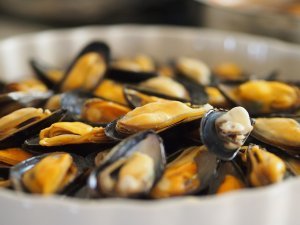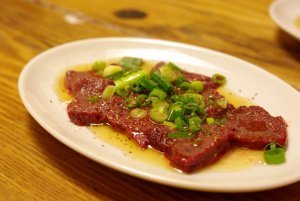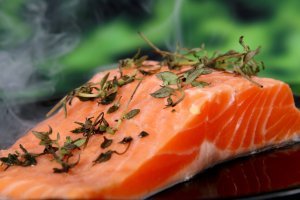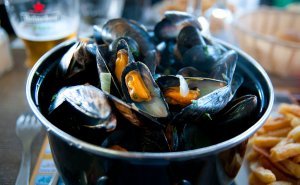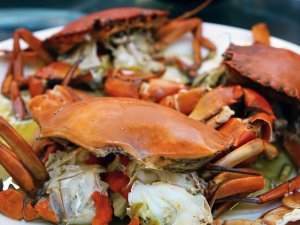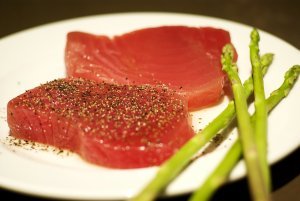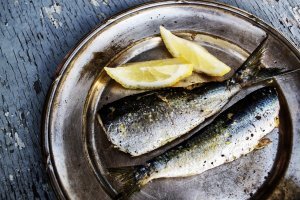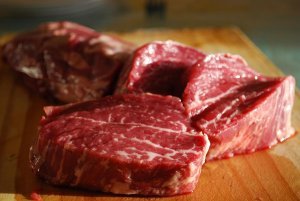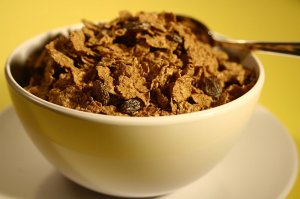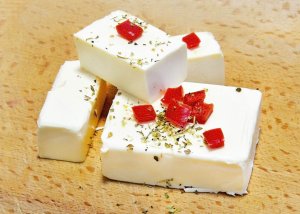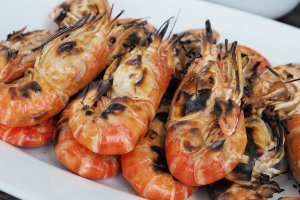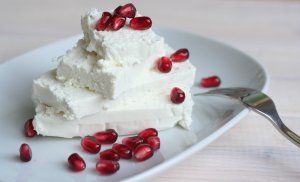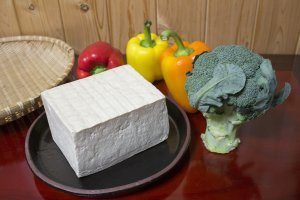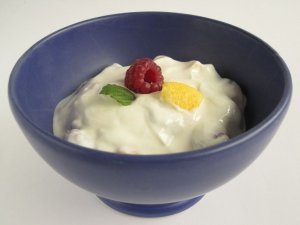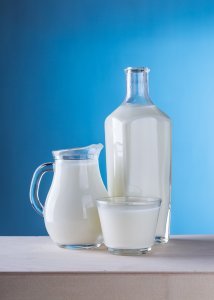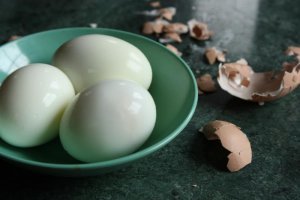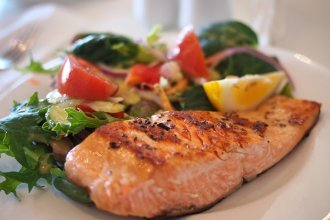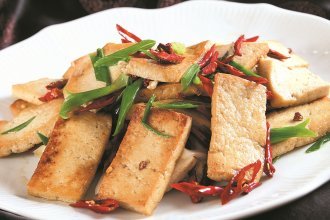16 Foods Highest in Vitamin B12
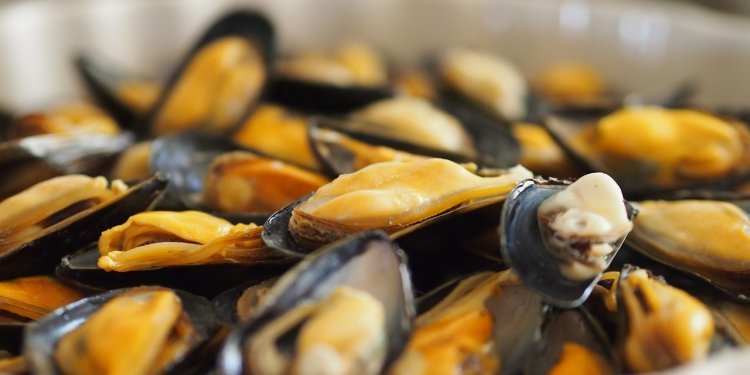
If you’re anything like me, your motto might be: “Eat. Sleep. Hustle.”
Your life consists of late nights, early mornings and trips to the gas station to restock your stash of energy drinks. You’d have that stuff on an IV if you could.
While you’re stocking up on energy drinks, you’re tempted to just buy the comically huge jug of cheese puffs in place of dinner. We’ve all been there.
But would you rather feel energized and eat a substantial meal? As a fellow food fanatic, I would hope the answer is yes!
Surprisingly, there are no magic tricks involved in this dream combination. There’s only one secret ingredient: vitamin B12.
Why is vitamin B12 important?
Vitamin B12 is the vitamin that makes it possible for you to make it through your day feeling energized and far from run down.
To get all technical, it does this by turning the delicious carbs you eat into glucose, which gets used as energy. So, yes, you can indulge in that cinnamon roll.
If you’re feeling stressed or down, like most people do occasionally, vitamin B12 can be your best friend. One of its functions is to regulate the nervous system by producing a compound called SAM, which helps reduce anxiety, depression, and stress.
Vitamin B12 is also involved with red blood cell reproduction, which does a huge favor for your hair, skin, and nails. So if you want to get rid of acne, stop getting split ends and grow strong nails, all you have to do is consume more vitamin B12.
Although you can find it in most meat and dairy products, you might try one of these foods highest in vitamin B12 for the best results:
Back to Top
Foods Highest in Vitamin B12
- Clams
- Beef Liver
- Salmon
- Mussels
- Crab
- Tuna
- Sardines
- Beef
- Fortified Cereal
- Feta Cheese
- Shrimp
- Cottage Cheese
- Fortified Tofu
- Greek Yogurt
- Whole Milk
- Hard-boiled Eggs
Clams
- Calories: 130
- Vitamin B12: 84.1mcg
- Protein: 22g
- Fat: 1.7g
Seafood lovers, you’re in luck! Clams have the highest amount of vitamin B12 with just three ounces providing 1,402 percent of the recommended daily value.
Clams are also a good choice for the health conscious because they are both low in fat and high in protein, which means you can eat more and feel full until your next meal. Your hanger problems are officially solved.
Beef Liver
- Calories: 140
- Vitamin B12: 70.7 mcg
- Protein: 22g
- Fat: 3.7g
Liver might not sound like the most appetizing meal, but it sure does have its benefits.
For one, liver is chock-full of vitamins and minerals. Of course it’s high in vitamin B12, but it’s also a good source for vitamin A and iron.
But the best part about liver is its versatility. You can incorporate it into any meal ranging anywhere from Italian to Chinese.
Salmon
- Calories: 203
- Vitamin B12: 18.1mcg
- Protein: 20g
- Fat: 13g
Salmon is the Holy Grail for all of the health nuts out there. Although it’s high in vitamin B12, its omega-3 fatty acids are what make this fish so desirable.
The omega-3’s make salmon act as a metabolism booster, heart attack preventer and even an antidepressant. And for all of you beauty enthusiasts, it’ll give your skin that natural glow.
Mussels
- Calories: 146
- Vitamin B12: 8.5mcg
- Protein: 20g
- Fat: 3.8g
These shellfish do a lot more for you than satisfy your taste buds.
In addition to vitamin B12, mussels also contain vitamins and minerals that help prevent arthritis, build immunity, and improve your brain functions.
So what are you waiting for? Now you have an excuse to indulge on this delicious treat!
Crab
- Calories: 71
- Vitamin B12: 10.3mcg
- Protein: 15g
- Fat: 0.6g
You can never go wrong with crab. Its succulent meat dipped in butter sounds like the utmost sinful meal, but you’re actually doing your body a favor. Well, maybe minus the butter.
Crab is one of the healthiest foods you can eat because of its high protein and low fat qualities. It also contains minerals such as selenium and chromium, which are thought to prevent cancer and decrease the risk of diabetes
Tuna
- Calories: 157
- Vitamin B12: 4.3mcg
- Protein: 25g
- Fat: 5g
Tuna is one of those things that you either love or hate. If you lean toward the latter, its health benefits will make you reconsider.
Whether it’s raw, cooked or canned, Tuna is perfect for the health conscious. For one, its omega-3’s stimulate the hormone leptin, which prevents overeating. It also decreases the risk of diseases, such as cancer, arthritis and kidney disease.
Sardines
- Calories: 191
- Vitamin B12: 8.22mcg
- Protein: 23g
- Fat: 11g
Sardines: the fish that instinctively make you plug your nose. Despite their stigma, sardines can actually be good and good for you.
With an abundance of vitamin B12 and vitamin D, sardines improve both your bone and heart health and prevent diseases like osteoporosis.
Its omega-3 fatty acids are also said to give you that naturally glowing skin. So maybe you won’t be so quick to turn them away.
Beef
- Calories: 250
- Vitamin B12: 6.18mcg
- Protein: 26g
- Fat: 15g
If seafood isn’t your thing, there’s no need to worry. Beef has got you covered.
Beef is one of the few red meats that are high in vitamin B12. It also provides sufficient amounts of zinc and iron, which keep you energized, increase muscle mass and improve your immune system to keep you from getting sick.
Another plus is that there are so many ways to eat beef!
Fortified Cereal
- Calories: varies
- Vitamin B12: 6mcg
- Protein: varies
- Fat: varies
Finally, a vegan option for vitamin B12.
Fortified cereal is cereal that has had vitamins and minerals put back into it. It’s the best source of vitamin B12 for vegans and vegetarians, but it contributes more than just that.
Fiber is one of the most important qualities of fortified cereal because it keeps you full and satisfied, while improving your digestive health.
For your healthiest options, try General Mill’s Multi-Grain Cheerios or Kellogg’s Special K Protein.
Feta Cheese
- Calories: 396
- Vitamin B12: 2.54mcg
- Protein: 21g
- Fat: 32g
Cheese is typically thought of as unhealthy because it’s high in fat and calories. But the positives in feta cheese outweigh the negatives.
In addition to being high in vitamin B12, feta contains a healthy combination of calcium and phosphorus. This combination protects bones against osteoporosis and maintains bone density.
Because it has a high fat content, it’s best to keep portions small.
Shrimp
- Calories: 99
- Vitamin B12: 2mcg
- Protein: 24g
- Fat: 0.3g
Shrimp kills two birds with one stone. It satisfies your taste buds with its subtly sweet flavor without hurting your waistline.
Much like tuna, the high levels of zinc in shrimp increase your levels of leptin, which promotes weight loss. Shrimp is also high in copper, which, when paired with zinc, helps keep your hair thick and shiny.
Cottage Cheese
- Calories: 222
- Vitamin B12: 38 percent DV
- Protein: 25g
- Fat: 10g
Cottage cheese is an indulgence you don’t have to feel guilty about. With a good balance between fat and protein, cottage cheese can be a healthy choice.
It contains high levels of casein, which helps rebuild muscle fibers after workouts. It’s also helpful for reducing muscle aches and cramps because of its electrolyte content.
Who knew cottage cheese would be the perfect post-workout snack?
Fortified Tofu
- Calories: 88.2
- Vitamin B12: 1.86mcg
- Protein: 10.3g
- Fat: 5.3g
Tofu isn’t typically everyone’s first choice. However, it provides essential health benefits, especially to vegans and vegetarians.
The most beneficial aspect of tofu is its soy content. Soy is known to decrease the risk of cancer, liver damage and damage to the kidney for those with type 2 diabetes.
Another plus side is that tofu takes on the taste of whatever you cook it in. So the options are limitless.
Greek Yogurt
- Calories: 100
- Vitamin B12: 20 percent DV
- Protein: 17g
- Fat: 0.7g
Greek yogurt is one of the most versatile foods. You can make it sweet or savory and incorporate it with practically any meal.
It’s also one of the healthiest foods. Greek yogurt is most important for the probiotics it provides. Probiotics decrease the risk of stomach issues and naturally keep you more optimistic.
It also has high levels of iodine, which keep your thyroid and metabolism healthy.
Whole Milk
- Calories: 103
- Vitamin B12: 1.07mcg
- Protein: 8g
- Fat: 2.4g
Whole milk is oftentimes given a bad rep because it’s full fat. But in this case, full fat is what makes it a healthy choice.
Whole milk contains several vitamins, such as vitamin D, which are absorbed better when combined with fat. It’s also more natural because it doesn’t need additives to give it flavor.
It’ll also keep you fuller longer than low-fat products.
Hard-boiled Eggs
- Calories: 78
- Vitamin B12: 0.7mcg
- Protein: 6g
- Fat: 5g
Hard-boiled eggs are the legitimate breakfast of champions. They’re simple, tasty and nutritious.
Unlike most foods with vitamin B12, these little guys are the best source for the antioxidant lutein. Its main function is to improve eyesight and prevent macular degeneration
Choline can also be found in hard-boiled eggs, which is shown to prevent Alzheimer’s disease and improve memory.
What happens if I don’t eat enough vitamin B12?
Not incorporating enough vitamin B12 in your diet puts you at risk for becoming vitamin B12 deficient. But, lucky for you, it’s hard to do since your body requires only 2.4 micrograms a day.
If you’re worried that you’re not getting enough, there are a few signs you can look out for.
For one, you may start to feel unusually fatigued and not because you stayed up binge watching your new favorite Netflix show.
If it persists, you may even start to feel dizzy from the simplest of tasks and start experiencing cognitive difficulties, such as losing your memory.
However, there’s no need to worry too much if you’re experiencing these things. It’s an easy fix: eat more vitamin B12.
Back to Top
Who’s at risk of developing a deficiency?
Because vitamin B12 is primarily found in meat and dairy products, vegans and vegetarians may have trouble getting enough of it through their typical diet.
Those with digestive issues are also at a high risk of developing a deficiency because they can’t properly digest and put the vitamin to use in their bodies.
Adults over the age of 50 are also at a higher risk because they require more vitamin B12 in their diet than younger adults.
Back to Top
What can I do to prevent a deficiency?
If you fall into one of the categories above, there are a few things that you can do.
Whether you’re vegan, over 50, or living with digestive issues, supplement pills are always an option.
Supplements are the most common treatment for a deficiency, and they come as either pills or in a nasal spray form. Some popular brands include Natrol and Centrum.
You can also opt to take a monthly shot of vitamin B12 if you’re brave enough to face needles. This option might be best for those with digestive issues.
But, of course, the best way is to enjoy regular meals with a healthy dose of vitamin B12.
What ways will you incorporate vitamin B12 into your diet?

